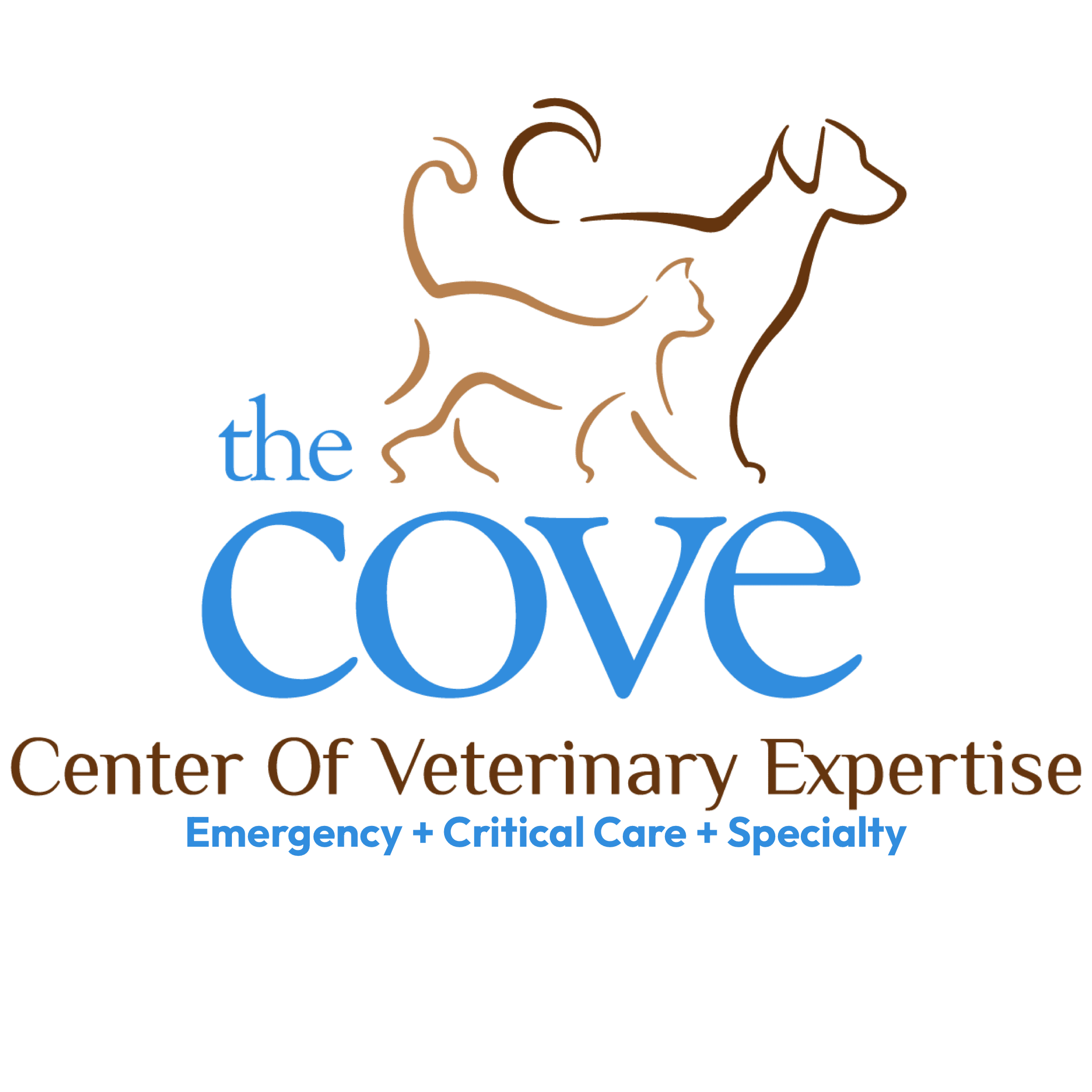Winter is a dangerous time when it comes to pet emergencies – from slips on icy sidewalks, to frostbite, to ingestion of specific toxins and more – the ER sees many more patients this time of year. But take comfort in knowing that the team at The COVE is here around the clock to help if your pet is suffering from any of these cold weather dangers:
- Hypothermia, ice, and snow – Cold weather dangers are imminent when Old Man Winter strikes, and pets can succumb to frostbite and hypothermia when left out in the elements too long. Signs of hypothermia include shivering, pale gums, lethargy, slow pulse, and disorientation. Never leave your pet outside or in your car when it is below 45 degrees. Also, check on your pets’ paws regularly as ice and snow can sneak up in the space between their toes. Salt and other chemicals used to grit roads can be an irritant to your dog’s pads, so we recommend wiping their paws with a cloth and warm water when you get home.
- Antifreeze – Antifreeze is one of the worst offenders when it comes to outdoor toxins, as it smells and tastes sweet to animals. Thoroughly clean up any spills on your driveway or in the garage, and keep a close eye on your pet when outdoors. Deicers and road salts are equally toxic, so make sure to wipe off your pet’s legs and paws when you come in from a winter walk.
- Indoor food and plants – With its desserts, rich foods, and alcohol, the winter season is not at a loss for all things delicious (to humans!), and this presents more opportunity for a pet to ingest something toxic or inappropriate. Some of the culprits that send pets to the ER include Xylitol (a sugar substitute), raisins and grapes, fatty foods, chocolate, and alcohol. There are also many seasonal plants, such as mistletoe, holly, and lilies, which are quite poisonous to pets.
- Car accidents – Roadway dangers are a problem year-round, but in inclement weather, the roads can become even more hazardous. We recommend that you bring all pets indoors, especially at night, and secure your yard so that a potential escape into traffic isn’t such a likely scenario. Use a lighted collar or safety vest when walking your pet after dusk or before dawn for greater visibility.
Pet emergencies can strike any season, but by being vigilant during cold and inclement weather, you can help minimize the risks associated with winter. In the throes of the big chill, take time to learn more about pet emergency preparedness and safety. If we can answer any questions, please contact our experienced and compassionate team. Stay warm, stay active, and maintain a winter wonderland with pet safety in mind!
About Us
The COVE’s veterinarians and staff wholeheartedly embrace the core values of community, collaboration, commitment, compassion, and integrity. This focus ensures that pets, the people who love them, and their primary care veterinarians have as positive and affirming a healthcare experience as possible, regardless of the circumstances that bring us all together.
